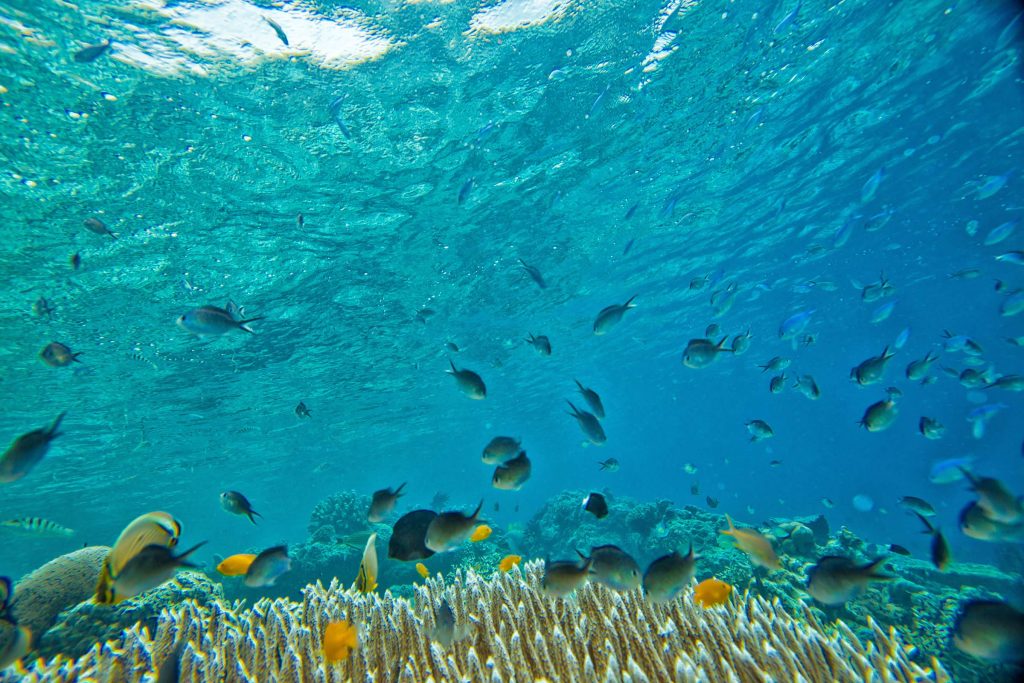Kirti Ranjan Mallick
If the ocean was an economy, it would be the seventh-largest in the world but ironically only 5 per cent of this huge water body has been explored.
For today’s changing world, the oceans are defining features on our blue planet. Millions of years ago, the first photosynthetic life forms flourished in the oceans that transformed our planet, converting carbon dioxide into oxygen. Since then, the phytoplankton – tiny plant like organism containing chlorophyll dwelling on upper ocean water column are responsible for producing at least 50 per cent of the oxygen on earth. Overall, oceans provide 70 per cent of oxygen, hence one should know that it doesn’t matter how far we live from the sea, for every 10 breaths we take 7 come from the ocean. All most all the rain that drops from sky to replenish rivers, ponds, reservoirs to a glass of water we drink is a part of a water cycle which is supplied by 90 per cent of ocean water. Therefore, each one of us should have rudimentary understanding of the processes that operate in oceans that make our planet habitable.
To encourage people to celebrate oceans and take steps to look after their health, the United Nations has designated June 8 as World Oceans Day. This year, the prime focus will be on life and livelihood that ocean sustains.
The ocean and humans are inextricably interconnected. Ocean influences human lives by moderating climate, creating job opportunities, boosting national economies and acting as social cultural heritage for people around the world. Studies suggest, by the end of 2030, worldwide maritime industries will employ more than 40 million people. Approximately 3 billion people rely on fisheries and aquaculture for their livelihoods.
Oceans provide the largest living space on earth that supports great diversity of species to flourish. Top ocean predators like blue whales, sharks, all the creatures that live, play important role in the trophic chain of the diverse marine ecosystem. Excessive fishing of a single species or one population in coastal areas leads to trophic cascade eventually leading to fisheries collapse. About 25 per cent of marine fish and small sea creatures find food, shelter and reproduce in pristine marine habitats of coral reef ecosystem. Over half a billion people depend on this coral reef ecosystem for food and income. These coral reefs often nicknamed as “rainforests of the sea” act as first line of defence against tropical storms and erosion of coastlines. Scientific evidence clearly points towards anthropogenic activities like burning fossil fuel for energy and industry, deforestation, farming livestock and fertilising crops put thermal stress on sea water causing half of the coral bleaching in tropical sea. Tonnes of wastes from landfills and industries, single use plastics and abandoned plastic fishing nets inevitably escape into the sea and suffocate, starve or kill sea animals damaging sensitive habitats. Micropalstics, chemicals in plastic ingested by seafish and heavy metal concentration in seafood have entered the food chain making it harmful for humans.
The ocean and the atmosphere are intertwined as the former sequestered 50 per cent of carbon and absorbed 90 per cent of heat added to the global system in the past 200 years. However, since the industrial revolution, human-induced greenhouse gases are making ocean water too acidic, driving out massive sink of carbon dioxide back into the atmosphere in a dangerous feedback loop. Overheating of massive salty water is disrupting the global network of interconnected deep and surface ocean currents drastically changing the world’s climate.
These changes in the ocean eventually impact not only the life forms existing in it but also above and beyond. Humans are the prime agent of this dangerous transformation putting their own and others’ existence at stake. It is high time we develop sensitivity and duty to protect, save and restore the health of our life supporting system, the oceans. ‘Ocean literacy’ – introducing fundamental concepts to public about the ocean’s influence on human and vice versa will help in protecting mother earth.
One does not need huge missions to contribute to change but easily doable actions such as avoiding single use plastic, reducing toxic household pollutants, saving water, energy, volunteering to clean beaches and using eco-friendly products will make the ocean a better place for life and livelihood.
Famous poet, WH Auden once said: “Thousands have lived without love, not one without water.” So act wisely and save oceans.
The writer is Assistant Professor in Department of Geology, Utkal University.
